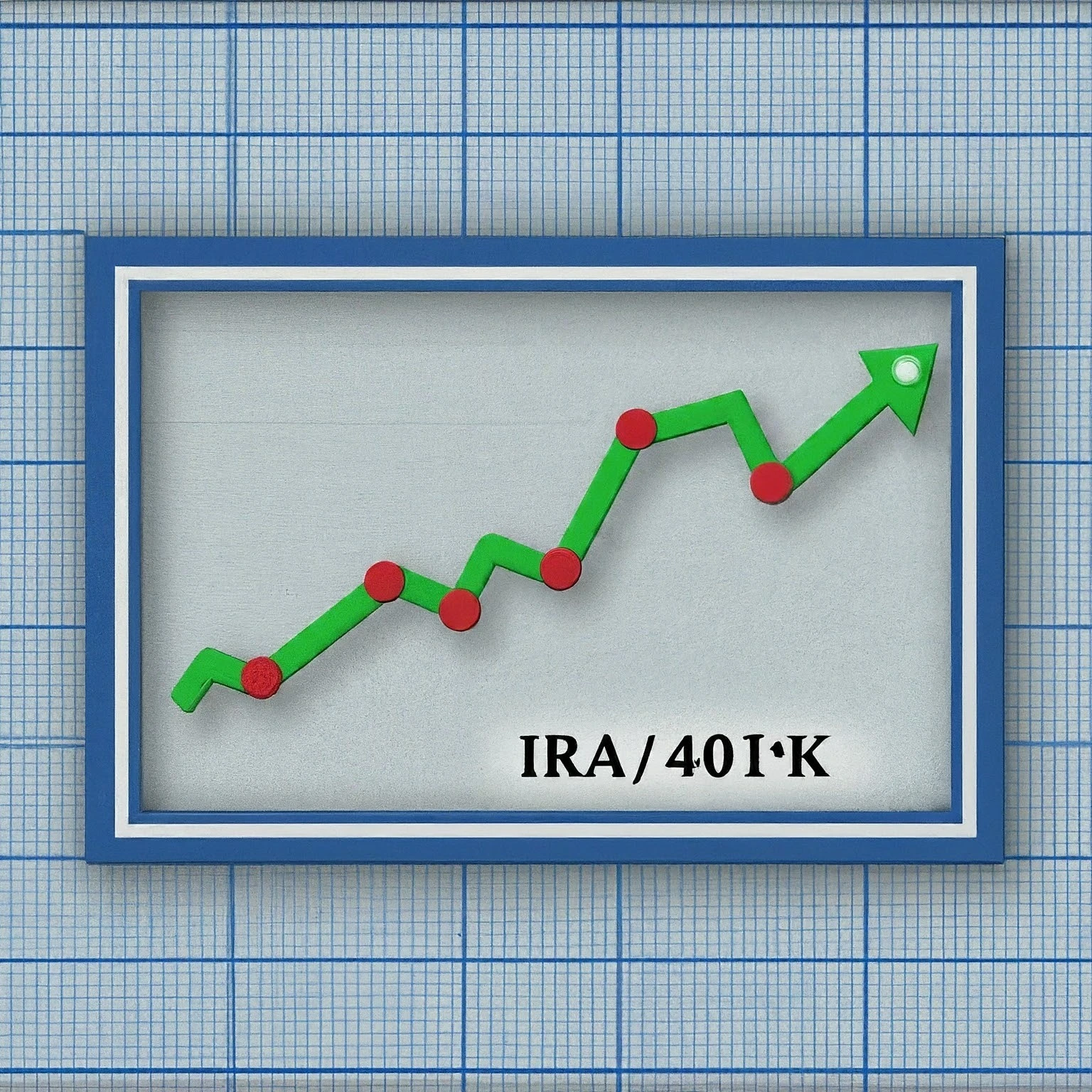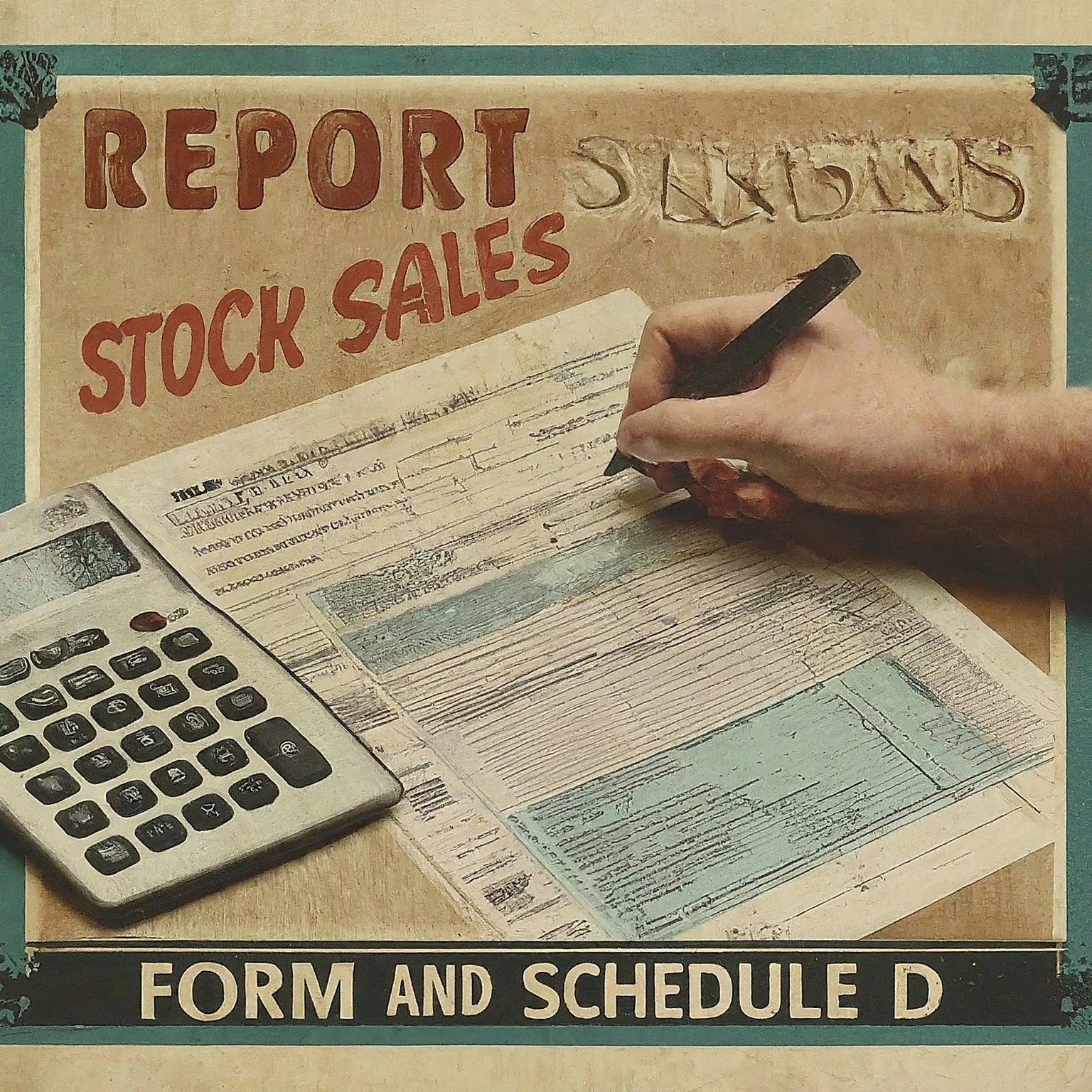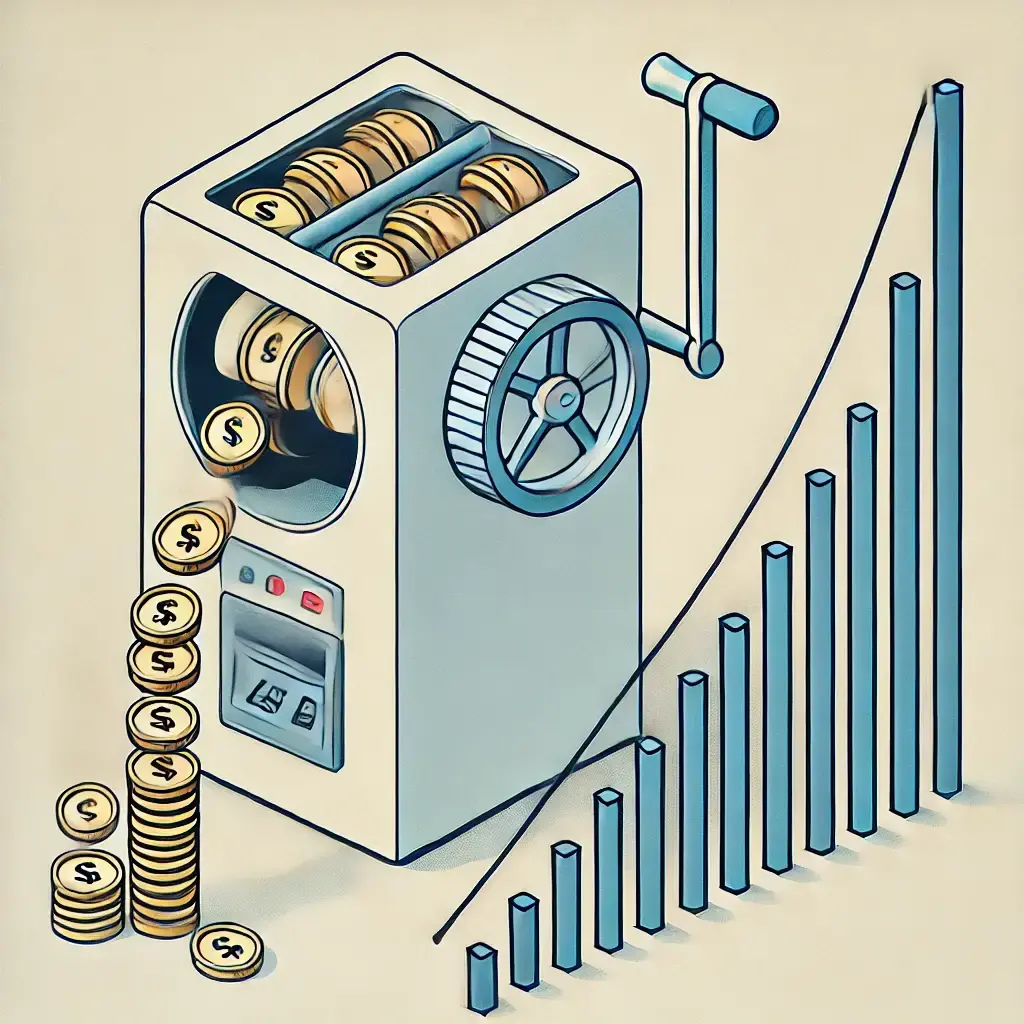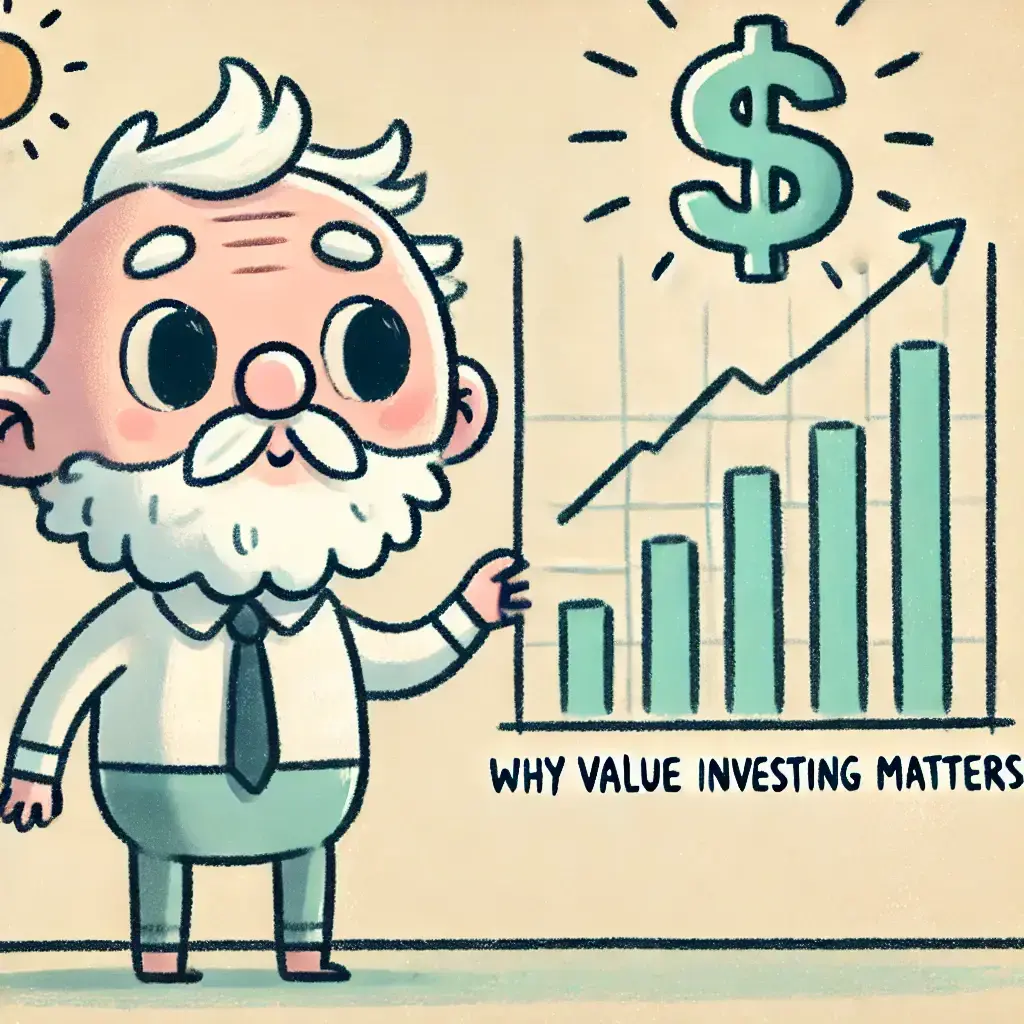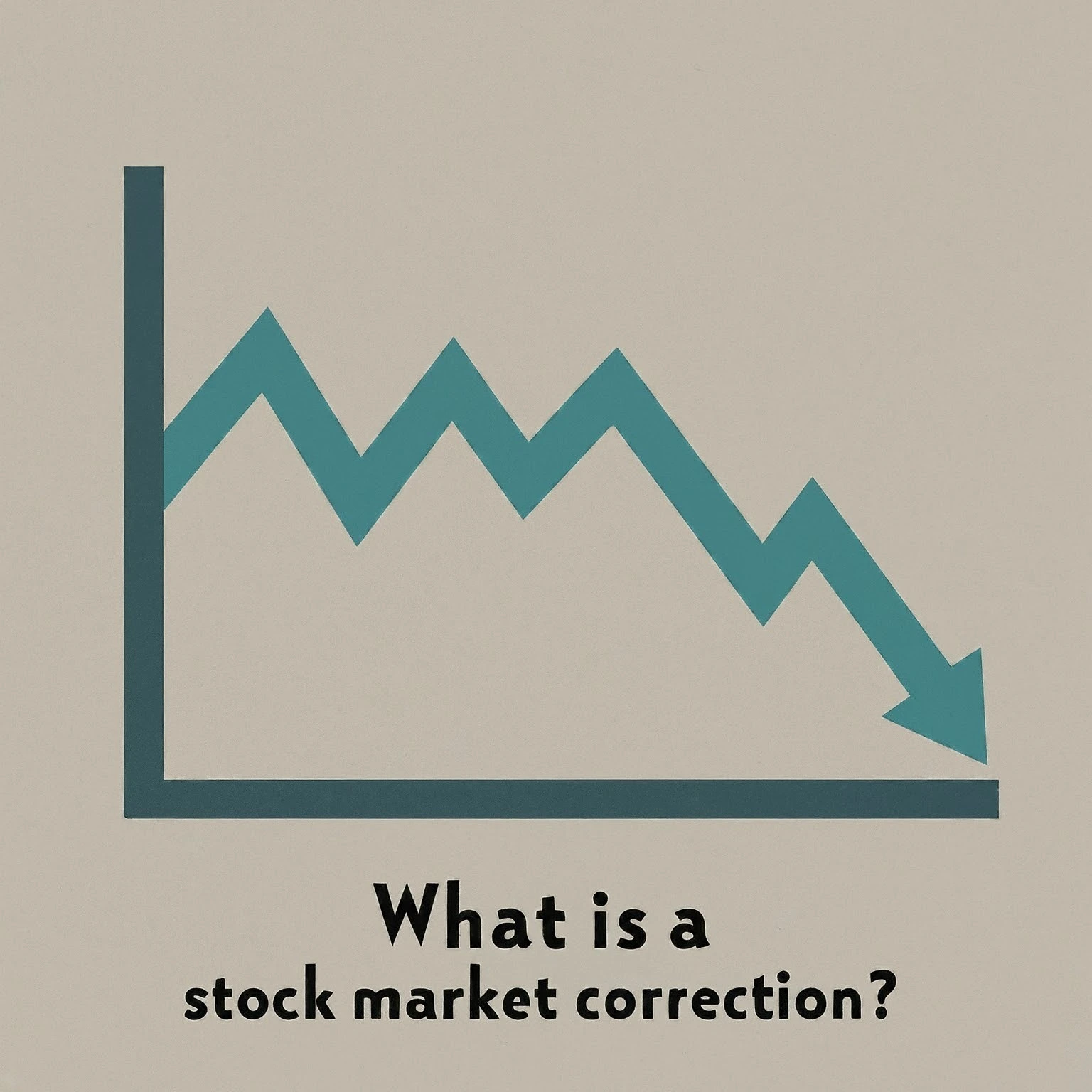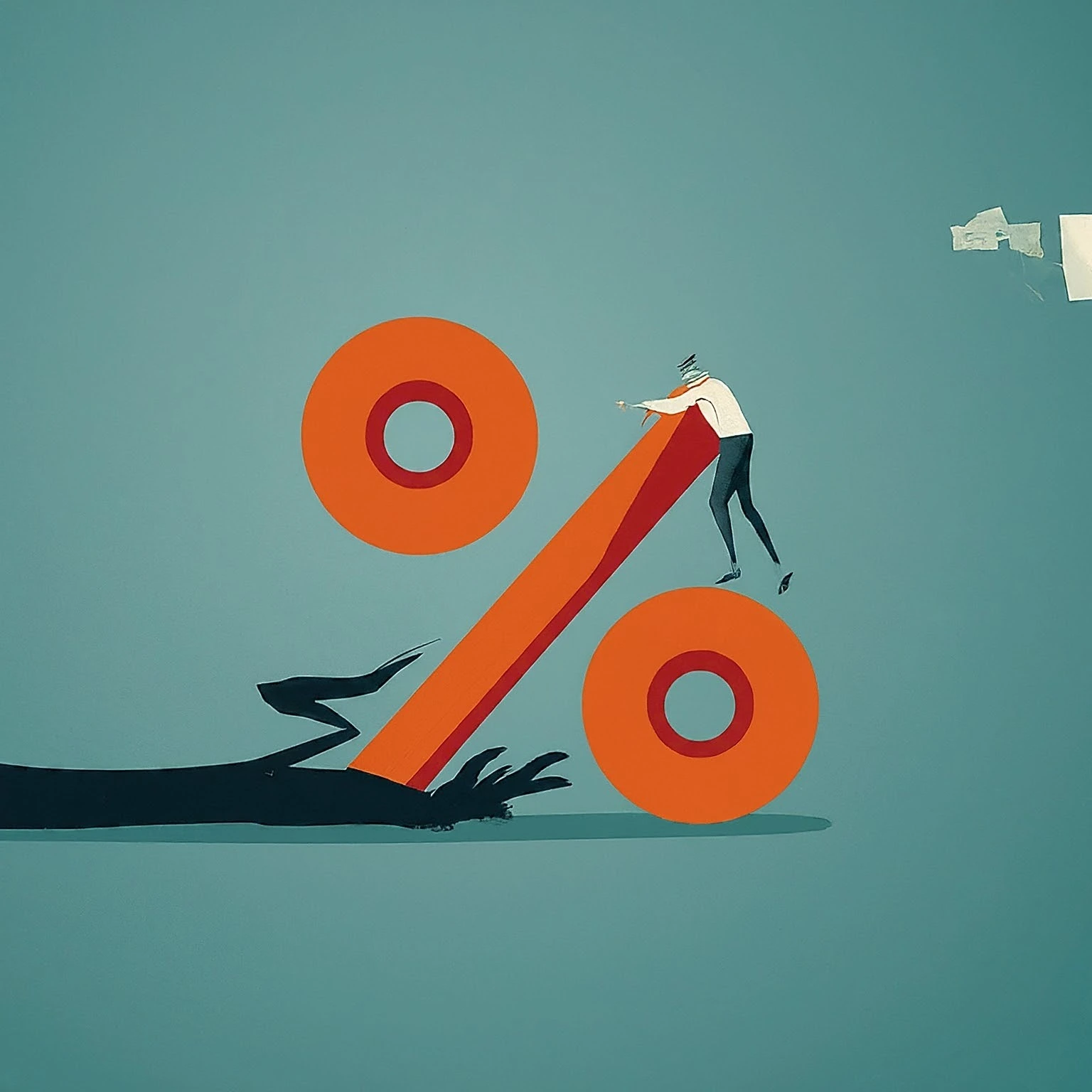- Bond Yield(Noun)
- /bahnd yeeld/
- Definition: The return an investor realizes on a bond, expressed as a percentage of the bond's face value.
- Etymology: Derived from the Latin "bond," meaning "to bind," and "yield," from Old English "gieldan," meaning "to pay." In finance, "yield" shifted to mean the income returned on an investment. The term "bond yield" specifically describes the percentage return on a bond.
- Similar: Return, Interest
- Opposite: Loss
- Example: "The bond yield increased to 3.5%, attracting more investors to government securities."
- Business Cycle(Noun)
- /bihz-nis sahy-kuhl/
- Definition: The natural rise and fall of economic growth that occurs over time, characterized by periods of expansion and contraction.
- Etymology: "Business" from Old English "bisig," meaning "careful or anxious," combined with "cycle" from Greek "kyklos," meaning "circle." The term "business cycle" reflects the recurring phases of economic activity.
- Similar: Economic cycle, Trade cycle
- Opposite: Economic stability
- Example: "The recession phase of the business cycle led to widespread unemployment and reduced consumer spending."
- Buy the Dip(Verb phrase)
- /bahy thuh dip/
- Definition: A strategy of purchasing stocks or other securities after they have dropped in price, with the expectation that they will rise again.
- Etymology: "Buy" from Old English "bycgan," meaning "to purchase," and "dip" from Middle English "dippen," meaning "to lower." In financial terms, it describes buying assets at a lower price with the expectation of a future increase.
- Similar: Bargain hunt, Value investing
- Opposite: Sell at peak
- Example: "Many investors choose to buy the dip during market corrections to capitalize on lower prices."
- Buy-and-Hold(Verb phrase)
- /bahy and hohld/
- Definition: An investment strategy where an investor buys stocks or other securities and holds them for a long period, regardless of market fluctuations.
- Etymology: "Buy" from Old English "bycgan," meaning "to purchase," and "hold" from Old English "healdan," meaning "to keep." This strategy emphasizes long-term investment over short-term market timing.
- Similar: Long-term investing
- Opposite: Day trading, Speculation
- Example: "The buy-and-hold strategy is favored by investors who believe in the long-term growth of the stock market."
- Cash Conversion Cycle(Noun)
- /kash kuhn-vur-zhuhn sahy-kuhl/
- Definition: A metric that measures the time it takes for a company to convert its investments in inventory and other resources into cash flows from sales.
- Etymology: "Cash" from Old French "caisse," meaning "money box," "conversion" from Latin "convertere," meaning "to turn around," and "cycle" from Greek "kyklos," meaning "circle." The term reflects the process of converting investments into cash.
- Similar: Cash cycle
- Example: "A shorter cash conversion cycle indicates that the company is more efficient in turning its resources into cash."
- Commodity(Noun)
- /kuh-mod-i-tee/
- Definition: A basic good or raw material, such as oil or wheat, that is interchangeable with other goods of the same type and is traded on markets.
- Etymology: From Latin "commoditas," meaning "convenience, advantage." In finance, the term evolved to mean goods that are traded on exchanges.
- Similar: Raw material, Product
- Opposite: Finished product
- Example: "Gold is a highly sought-after commodity during times of economic uncertainty."
- Cost of Goods Sold (COGS)(Noun)
- /kost uhv goods sohld/
- Definition: The direct costs associated with producing goods sold by a company, including materials and labor.
- Etymology: "Cost" from Old French "coste," meaning "price," "goods" from Old English "gōd," meaning "property," and "sold" from Latin "vendere," meaning "to sell." COGS refers to the expense tied directly to the production of goods.
- Similar: Cost of sales, Production cost
- Opposite: Gross profit
- Example: "Reducing the cost of goods sold can increase a company's gross profit margin."
- Cost of Revenue(Noun)
- /kost uhv rev-uh-noo/
- Definition: The total cost of manufacturing and delivering a product or service to consumers, including COGS and additional costs like distribution and marketing.
- Etymology: "Cost" from Old French "coste," meaning "price," and "revenue" from Old French "revenue," meaning "return." This term encompasses all expenses incurred to generate revenue.
- Similar: Total cost of sales
- Opposite: Net revenue
- Example: "A company's cost of revenue includes both the cost of goods sold and additional operating expenses."
- Covenants(Noun)
- /kuhv-uh-nuhnts/
- Definition: Legally binding promises or agreements in a financial contract, often stipulating conditions on borrowers.
- Etymology: From Old French "covenant," meaning "agreement," and Latin "convenire," meaning "to come together." In finance, covenants are conditions placed on borrowers in loan agreements.
- Similar: Conditions, Clauses
- Example: "The loan agreement includes covenants that require the company to maintain a certain debt-to-equity ratio."
- Credit Default Swap (CDS)(Noun)
- /kred-it dih-fawlt swop/
- Definition: A financial derivative that allows an investor to swap or offset their credit risk with that of another investor.
- Etymology: "Credit" from Latin "creditum," meaning "a loan," "default" from Old French "defaute," meaning "failure," and "swap" from Middle English "swap," meaning "exchange." CDS contracts transfer the risk of debt default from one party to another.
- Similar: Debt insurance
- Example: "Investors use credit default swaps to hedge against the risk of a bond issuer defaulting."
- Credit Rating(Noun)
- /kred-it rey-ting/
- Definition: An assessment of the creditworthiness of a borrower, typically expressed as a score or letter grade, indicating the risk of default.
- Etymology: "Credit" from Latin "creditum," meaning "a loan," and "rating" from Old English "rætt," meaning "to assess." In finance, credit ratings assess the likelihood of a borrower repaying debt.
- Similar: Credit score
- Example: "A higher credit rating allows a company to borrow money at lower interest rates."
- Debt Financing(Noun)
- /det fahy-nan-sing/
- Definition: The process of raising capital by borrowing money, typically through issuing bonds or taking out loans.
- Etymology: "Debt" from Old French "dette," meaning "something owed," and "financing" from Latin "financiare," meaning "to provide with funds." Debt financing involves borrowing to fund business operations or growth.
- Similar: Borrowing, Leverage
- Opposite: Equity financing
- Example: "The company used debt financing to expand its operations without diluting shareholder equity."
- Depreciation(Noun)
- /dih-pree-shee-ey-shuhn/
- Definition: The reduction in value of an asset over time, particularly due to wear and tear.
- Etymology: From Latin "depretiatio," meaning "lowering of value." In finance, it refers to the allocation of the cost of a tangible asset over its useful life.
- Similar: Amortization (in certain contexts)
- Opposite: Appreciation
- Example: "Depreciation is accounted for annually to reflect the declining value of the company's machinery."
- Earnings Before Interest and Taxes (EBIT)(Noun)
- /ur-ningz bih-fawr in-tuh-rest and taks-iz/
- Definition: A financial metric that measures a company's profitability before deducting interest expenses and taxes.
- Etymology: "Earnings" from Old English "earnian," meaning "to earn," "interest" from Latin "interest," meaning "it concerns," and "taxes" from Latin "taxare," meaning "to assess." EBIT is a measure of operating performance.
- Similar: Operating profit
- Opposite: Net loss
- Example: "EBIT provides a clear view of a company's operating profitability, excluding the effects of financing and tax expenses."
- Earnings Before Interest, Taxes, Depreciation, and Amortization (EBITDA)(Noun)
- /ur-ningz bih-fawr in-tuh-rest, taks-iz, dih-pree-shee-ey-shuhn, and am-or-ti-zey-shuhn/
- Definition: A financial metric that measures a company's overall financial performance, excluding expenses related to interest, taxes, depreciation, and amortization.
- Etymology: "Earnings," "interest," "taxes," "depreciation," and "amortization" as previously defined. EBITDA is used to evaluate a company's operating performance.
- Similar: Operating cash flow (in some contexts)
- Opposite: Net loss
- Example: "EBITDA is often used by investors to compare the profitability of companies without the effects of capital structure."
- Equity Financing(Noun)
- /ek-wi-tee fahy-nan-sing/
- Definition: The process of raising capital through the sale of shares in a company.
- Etymology: "Equity" from Old French "equité," meaning "fairness," and "financing" from Latin "financiare," meaning "to provide with funds." Equity financing involves selling ownership stakes in a company to raise funds.
- Similar: Stock issuance, Capital raising
- Opposite: Debt financing
- Example: "Startups often rely on equity financing to fund their growth, offering investors ownership in return."
- Fallen Angel(Noun)
- /faw-luhn eyn-juhl/
- Definition: A bond that was originally issued with an investment-grade rating but has since been downgraded to junk bond status due to the issuer's declining creditworthiness.
- Etymology: "Fallen" from Old English "feallan," meaning "to fall," and "angel" from Old English "engel," meaning "messenger." In finance, it refers to bonds that have "fallen" from grace.
- Similar: Downgraded bond
- Opposite: Rising star (in bond terminology)
- Example: "Investors may find fallen angels attractive due to their higher yields despite the increased risk."
- Fixed Assets(Noun)
- /fikst as-ets/
- Definition: Long-term tangible assets that a company owns and uses in its operations to generate income, such as buildings, machinery, and equipment.
- Etymology: "Fixed" from Latin "fixus," meaning "settled," and "assets" from Latin "ad satis," meaning "sufficient." Fixed assets are permanent assets used in business operations.
- Similar: Capital assets, Long-term assets
- Opposite: Current assets
- Example: "The company's fixed assets include its factory buildings and heavy machinery."
- Haircut(Noun)
- /hair-kuht/
- Definition: In finance, a haircut refers to a reduction applied to the value of an asset when it is used as collateral for a loan, often due to the perceived risk.
- Etymology: "Haircut" from Old English "hær," meaning "hair," and "cut" from Old English "cyttan," meaning "to cut." In finance, the term metaphorically refers to a reduction in asset value.
- Similar: Discount, Write-down
- Opposite: Premium
- Example: "The bank applied a 20% haircut to the collateral due to market volatility."
- High-Yield Bond(Noun)
- /hahy-yeeld bahnd/
- Definition: A bond that offers a higher interest rate due to its lower credit rating and higher risk of default, also known as a junk bond.
- Etymology: "High" from Old English "heah," meaning "elevated," "yield" from Old English "gieldan," meaning "to pay," and "bond" from Latin "bond," meaning "to bind." High-yield bonds offer higher returns to compensate for increased risk.
- Similar: Junk bond
- Opposite: Investment-grade bond
- Example: "Investors seeking higher returns may consider high-yield bonds, though they carry greater risk."
- Initial Coin Offering (ICO)(Noun)
- /ih-nish-uhl koin aw-fer-ing/
- Definition: A fundraising method used by cryptocurrency startups where new digital tokens are sold to investors in exchange for established cryptocurrencies or fiat money.
- Etymology: "Initial" from Latin "initialis," meaning "beginning," "coin" from Latin "cuneus," meaning "wedge," and "offering" from Old English "offrung," meaning "a presentation." ICOs are modeled after Initial Public Offerings (IPOs) but in the cryptocurrency space.
- Similar: Token sale, Crypto fundraising
- Opposite: IPO (in traditional finance)
- Example: "The startup raised $10 million through its initial coin offering to develop a new blockchain platform."
- Interest Expense(Noun)
- /in-tuh-rest ik-spens/
- Definition: The cost incurred by an entity for borrowed funds, typically calculated as the interest rate multiplied by the outstanding principal.
- Etymology: "Interest" from Latin "interest," meaning "it concerns," and "expense" from Latin "expendere," meaning "to pay out." Interest expense reflects the cost of servicing debt.
- Similar: Debt service cost
- Opposite: Interest income
- Example: "The company's interest expense increased as it took on more debt to finance its expansion."
- Inverse ETF(Noun)
- /in-vurs ee-tee-ef/
- Definition: An exchange-traded fund (ETF) designed to perform as the inverse of a specific index, meaning it increases in value when the index decreases, and vice versa.
- Etymology: "Inverse" from Latin "inversus," meaning "turned upside down," and "ETF," an acronym for "exchange-traded fund." Inverse ETFs are used to hedge against declines in a particular index or sector.
- Similar: Short ETF
- Opposite: Long ETF
- Example: "Investors used an inverse ETF to protect their portfolios from a market downturn."
- Investment Grade(Noun)
- /in-vest-muhnt greyd/
- Definition: A classification for bonds or other debt securities that indicates a low risk of default, typically rated BBB or higher by credit rating agencies.
- Etymology: "Investment" from Latin "investire," meaning "to clothe," and "grade" from Latin "gradus," meaning "step or degree." Investment-grade securities are considered safer for investors.
- Similar: High-quality bond
- Opposite: Junk bond
- Example: "The company issued investment-grade bonds to finance its new infrastructure project."
- Leveraged Buyout (LBO)(Noun)
- /lev-er-ijd bahy-out/
- Definition: The acquisition of a company using a significant amount of borrowed money, typically secured by the assets of the company being acquired, with the goal of paying off the debt with the company’s future cash flows.
- Etymology: "Leveraged" from French "levier," meaning "to raise," and "buyout" from Old English "bycgan," meaning "to purchase," and "ūt," meaning "out." An LBO uses debt as a lever to increase purchasing power.
- Similar: Debt-financed takeover
- Opposite: Cash buyout
- Example: "The private equity firm completed a leveraged buyout of the manufacturing company, using its assets as collateral for the loan."
- Leveraged ETF(Noun)
- /lev-er-ijd ee-tee-ef/
- Definition: An exchange-traded fund that uses financial derivatives and debt to amplify the returns of an underlying index, often aiming to achieve two or three times the daily performance of that index.
- Etymology: "Leveraged" from French "levier," meaning "to raise," and "ETF," an acronym for "exchange-traded fund." Leveraged ETFs use leverage to increase exposure to an index.
- Similar: Ultra ETF
- Opposite: Standard ETF
- Example: "Leveraged ETFs are popular among traders seeking amplified returns, though they carry higher risks."
- Margin Call(Noun)
- /mahr-jin kawl/
- Definition: A demand from a broker for an investor to deposit additional money or securities to cover possible losses when the value of the securities purchased on margin falls below a certain level.
- Etymology: "Margin" from Old French "marge," meaning "edge," and "call" from Old English "ceallian," meaning "to shout." In finance, a margin call is a demand for more collateral to secure a loan.
- Similar: Collateral demand
- Example: "The sudden drop in stock prices triggered a margin call, forcing the investor to add funds to their account."
- Market Liquidity(Noun)
- /mahr-kit li-kwid-i-tee/
- Definition: The ease with which an asset can be bought or sold in a market without affecting its price. High liquidity indicates that an asset can be quickly converted into cash.
- Etymology: "Market" from Latin "mercatus," meaning "trade," and "liquidity" from Latin "liquidus," meaning "fluid." Market liquidity refers to the availability of buyers and sellers in a market.
- Similar: Cashability, Marketability
- Opposite: Illiquidity
- Example: "The market liquidity of blue-chip stocks makes them attractive to investors looking for quick trades."
- Market Multiple(Noun)
- /mahr-kit muhl-tuh-puhl/
- Definition: A valuation metric that compares a company's market value to a financial performance measure, such as earnings or sales, often used in relative valuation.
- Etymology: "Market" from Latin "mercatus," meaning "trade," and "multiple" from Latin "multiplex," meaning "having many parts." Market multiples are used to value a company relative to others in the market.
- Similar: Valuation multiple
- Example: "Analysts use market multiples like the price-to-earnings ratio to compare companies within the same industry."
- Net Debt(Noun)
- /net det/
- Definition: A company's total debt minus its cash and cash equivalents, representing the amount of debt that exceeds the company's liquid assets.
- Etymology: "Net" from Old French "net," meaning "clean or pure," and "debt" from Old French "dette," meaning "something owed." Net debt indicates a company’s total debt obligations after accounting for cash reserves.
- Similar: Net leverage
- Opposite: Net cash position
- Example: "Net debt is a key indicator of a company's financial health, showing its ability to cover debt with available cash."
- Net Profit Margin(Noun)
- /net pro-fuh-t mahr-jin/
- Definition: A financial metric that shows the percentage of revenue that remains as profit after all expenses have been deducted.
- Etymology: "Net" from Old French "net," meaning "clean or pure," "profit" from Latin "proficere," meaning "to advance," and "margin" from Latin "margo," meaning "edge." Net profit margin measures how effectively a company converts revenue into profit.
- Similar: Profit margin, Net margin
- Opposite: Gross profit margin
- Example: "A high net profit margin indicates that the company is efficient in controlling its costs relative to its revenue."
- Non-GAAP Earnings(Noun)
- /non gap ur-ningz/
- Definition: Earnings that do not conform to Generally Accepted Accounting Principles (GAAP), often adjusted to exclude irregular or non-recurring items to provide a clearer picture of a company’s core earnings.
- Etymology: "Non-" from Latin "non," meaning "not," and "GAAP" is an acronym for "Generally Accepted Accounting Principles." Non-GAAP earnings are used to show a company's earnings without one-time costs or unusual items.
- Similar: Adjusted earnings
- Opposite: GAAP earnings
- Example: "Investors often look at non-GAAP earnings to understand a company's performance excluding one-time events."
- Operating Cash Flow(Noun)
- /op-uh-rey-ting kash floh/
- Definition: The cash generated by a company’s normal business operations, indicating its ability to generate sufficient cash to maintain or grow its operations.
- Etymology: "Operating" from Latin "operari," meaning "to work," "cash" from Old French "caisse," meaning "money box," and "flow" from Old English "flōwan," meaning "to flow." Operating cash flow measures the cash inflows and outflows from a company’s core business activities.
- Similar: Cash from operations
- Opposite: Net income (in some contexts)
- Example: "Strong operating cash flow allows the company to reinvest in its business without needing external financing."
- Operating Expense(Noun)
- /op-uh-rey-ting ik-spens/
- Definition: The ongoing costs associated with running a business, excluding the cost of goods sold, typically including rent, utilities, payroll, and other administrative costs.
- Etymology: "Operating" from Latin "operari," meaning "to work," and "expense" from Latin "expendere," meaning "to pay out." Operating expenses represent the costs needed to keep a business operational.
- Similar: OPEX, Overhead
- Opposite: Capital expenditure (CAPEX)
- Example: "Reducing operating expenses can improve a company’s profitability without affecting its revenue."
- Over-the-Counter (OTC)(Adjective)
- /oh-ver-thuh koun-ter/
- Definition: A decentralized market where securities are traded directly between parties without a central exchange or broker, often used for stocks, bonds, and derivatives.
- Etymology: "Over" from Old English "ofer," meaning "above," "the," and "counter" from Latin "contra," meaning "against." Over-the-counter trading occurs outside of formal exchanges, typically through a dealer network.
- Similar: Off-exchange, Unlisted trading
- Opposite: Exchange-traded
- Example: "Many smaller or less-liquid stocks are traded over-the-counter rather than on a major exchange."
- Payback Period(Noun)
- /pey-bak peer-ee-uhd/
- Definition: The length of time required for an investment to generate cash flows sufficient to recover the initial investment cost.
- Etymology: "Payback" from Old English "pæccan," meaning "to satisfy," and "period" from Latin "periodos," meaning "a way around." The payback period measures how quickly an investment can return its cost.
- Similar: Break-even period
- Example: "The payback period for the new machinery is estimated to be three years, after which it will start generating profit."
- Portfolio Management(Noun)
- /pawrt-foh-lee-oh man-ij-muhnt/
- Definition: The art and science of making decisions about investment mix and policy, matching investments to objectives, asset allocation, and balancing risk against performance.
- Etymology: "Portfolio" from Italian "portafoglio," meaning "a case for carrying documents," and "management" from Latin "manu agere," meaning "to lead by the hand." Portfolio management involves strategically managing a collection of investments.
- Similar: Investment management
- Example: "Effective portfolio management is crucial for achieving long-term financial goals while minimizing risk."
- Price-to-Cash Flow(Noun)
- /prahys tuh kash floh/
- Definition: A valuation ratio that compares a company's market price to its cash flow per share, used to evaluate the value of a company relative to its cash-generating ability.
- Etymology: "Price" from Old French "pris," meaning "value," "cash" from Old French "caisse," meaning "money box," and "flow" from Old English "flōwan," meaning "to flow." Price-to-cash flow measures the market's valuation of a company’s cash flow.
- Similar: P/CF ratio
- Example: "Investors often use the price-to-cash flow ratio to identify companies with strong cash flows relative to their stock price."
- Price-to-Earnings Growth (PEG)(Noun)
- /prahys tuh ur-ningz grohth/
- Definition: A ratio that measures the relationship between a company's price-to-earnings ratio and its expected earnings growth rate, used to determine a stock's value while considering growth.
- Etymology: "Price" from Old French "pris," meaning "value," "earnings" from Old English "earnian," meaning "to earn," and "growth" from Old English "growan," meaning "to grow." The PEG ratio adjusts the price-to-earnings ratio by the expected growth rate.
- Similar: PEG ratio
- Example: "A lower PEG ratio suggests that a stock may be undervalued relative to its growth potential."
- Price-to-Free Cash Flow(Noun)
- /prahys tuh free kash floh/
- Definition: A valuation metric that compares a company's market price to its free cash flow, indicating how much investors are willing to pay per dollar of free cash flow.
- Etymology: "Price" from Old French "pris," meaning "value," "free" from Old English "freo," meaning "not in bondage," "cash" from Old French "caisse," meaning "money box," and "flow" from Old English "flōwan," meaning "to flow." This ratio measures market valuation against the company’s available cash flow.
- Similar: P/FCF ratio
- Example: "The price-to-free cash flow ratio helps investors assess whether a company’s stock is overvalued based on its cash flow generation."
- Price-to-Sales Ratio(Noun)
- /prahys tuh seylz rey-shoh/
- Definition: A valuation ratio that compares a company’s stock price to its revenues, indicating how much investors are willing to pay per dollar of sales.
- Etymology: "Price" from Old French "pris," meaning "value," and "sales" from Old English "sellan," meaning "to give." The price-to-sales ratio evaluates how the market values a company relative to its sales.
- Similar: P/S ratio
- Example: "A lower price-to-sales ratio may indicate that a stock is undervalued relative to its revenue."
- Profit and Loss Statement (P&L)(Noun)
- /prof-it and lawss steyt-muhnt/
- Definition: A financial statement that summarizes the revenues, costs, and expenses incurred during a specific period, showing a company’s profit or loss.
- Etymology: "Profit" from Latin "proficere," meaning "to advance," "loss" from Old English "los," meaning "destruction," and "statement" from Latin "stare," meaning "to stand." The P&L statement provides a summary of a company’s financial performance.
- Similar: Income statement
- Example: "The profit and loss statement for the quarter showed a significant increase in net income compared to the previous year."
- Pump and Dump(Noun)
- /puhnp and duhm-p/
- Definition: A fraudulent practice where the price of a stock is artificially inflated through false or misleading statements, only for the price to drop sharply after the manipulators sell their shares at a profit.
- Etymology: "Pump" from Old English "pumpa," meaning "to force," and "dump" from Middle English "dumpe," meaning "to drop." In finance, "pump and dump" refers to artificially inflating and then selling off assets.
- Similar: Stock manipulation
- Opposite: Legitimate trading
- Example: "Regulators are cracking down on pump and dump schemes that defraud unsuspecting investors."
- Quantitative Easing(Noun)
- /kwon-ti-tey-tiv ee-zing/
- Definition: A monetary policy where a central bank purchases government securities or other securities from the market to increase the money supply and encourage lending and investment.
- Etymology: "Quantitative" from Latin "quantitas," meaning "amount," and "easing" from Old English "esan," meaning "to make comfortable." Quantitative easing aims to stimulate the economy by increasing money supply.
- Similar: Asset purchase program
- Opposite: Quantitative tightening
- Example: "The central bank implemented quantitative easing to inject liquidity into the economy during the financial crisis."
- Return on Capital Employed (ROCE)(Noun)
- /ri-turn on kap-i-tl em-ploid/
- Definition: A financial ratio that measures a company’s profitability and the efficiency with which its capital is employed, calculated as operating profit divided by capital employed.
- Etymology: "Return" from Old French "retourner," meaning "to turn back," "capital" from Latin "caput," meaning "head," and "employed" from Old French "emploier," meaning "to apply." ROCE measures the return a company earns on its capital.
- Example: "ROCE is an important metric for evaluating how well a company is generating profit from its capital."
- Revenue Recognition(Noun)
- /rev-uh-nyoo rek-uhg-nish-uhn/
- Definition: The accounting principle that dictates the conditions under which revenue is recognized in the financial statements, typically when it is earned and realizable.
- Etymology: "Revenue" from Old French "revenue," meaning "return," and "recognition" from Latin "recognitio," meaning "acknowledgment." Revenue recognition is critical for accurately reflecting a company’s financial performance.
- Similar: Revenue realization
- Example: "Proper revenue recognition ensures that the company's financial statements accurately reflect its earnings."
- ROIC (Return on Invested Capital)(Noun)
- /ar-oh-eye-see/
- Definition: A performance metric used to evaluate the efficiency of a company in generating returns from its invested capital, calculated as net operating profit after taxes divided by invested capital.
- Etymology: "Return" from Old French "retourner," meaning "to turn back," "invested" from Latin "investire," meaning "to clothe," and "capital" from Latin "caput," meaning "head." ROIC measures the profitability of a company’s investments.
- Similar: ROI (in some contexts)
- Example: "A high ROIC indicates that the company is using its capital efficiently to generate profits."
- Shareholder Value(Noun)
- /shair-hohl-der val-yoo/
- Definition: The value delivered to shareholders as a result of management's ability to grow earnings, dividends, and share price, often used as a measure of a company’s success.
- Etymology: "Shareholder" from Old English "scearu," meaning "part or portion," and "value" from Latin "valere," meaning "to be worth." Shareholder value is the financial return provided to shareholders.
- Similar: Stockholder value
- Example: "The CEO's primary goal is to maximize shareholder value through strategic investments and cost management."
- Short Squeeze(Noun)
- /shawrt skweez/
- Definition: A market condition where a heavily shorted stock experiences a rapid price increase, forcing short sellers to cover their positions by buying back the stock, thereby driving the price up even further.
- Etymology: "Short" from Old English "sceort," meaning "brief," and "squeeze" from Old English "cwysan," meaning "to crush." In finance, a short squeeze occurs when short sellers are forced to buy back shares at higher prices.
- Example: "The stock surged 50% in a short squeeze, catching many short sellers off guard."
- Systematic Risk(Noun)
- /sis-tuh-mat-ik risk/
- Definition: The risk inherent to the entire market or market segment, also known as "market risk," which cannot be mitigated through diversification.
- Etymology: "Systematic" from Greek "systēmatikos," meaning "pertaining to a system," and "risk" from Old Italian "risco," meaning "danger." Systematic risk affects the overall market, not just individual stocks or sectors.
- Similar: Market risk
- Opposite: Unsystematic risk
- Example: "Systematic risk affects all investors, as it is linked to broad economic factors like interest rates and inflation."
- Tapering(Noun)
- /tey-per-ing/
- Definition: The gradual slowing down of a central bank’s large-scale asset purchases or other forms of monetary stimulus, typically signaling a shift in monetary policy.
- Etymology: "Taper" from Old English "tapor," meaning "candle," with the financial term "tapering" referring to a reduction in the intensity or volume of monetary stimulus.
- Similar: Monetary tightening
- Opposite: Quantitative easing
- Example: "The market reacted to the central bank’s announcement of tapering by adjusting bond prices."
- Terminal Value(Noun)
- /tur-muh-nl val-yoo/
- Definition: The value of a company’s expected cash flows beyond a forecast period, often used in discounted cash flow (DCF) analysis to estimate the value of a company at the end of the explicit forecast period.
- Etymology: "Terminal" from Latin "terminalis," meaning "pertaining to an end," and "value" from Latin "valere," meaning "to be worth." Terminal value estimates the remaining value of a company at the end of the projection period.
- Similar: Residual value
- Example: "In DCF analysis, the terminal value accounts for the majority of a company’s total valuation."
- Time Value of Money(Noun)
- /tahym val-yoo uhv muhn-ee/
- Definition: The financial principle that money available now is worth more than the same amount in the future due to its potential earning capacity.
- Etymology: "Time" from Old English "tima," meaning "a period," "value" from Latin "valere," meaning "to be worth," and "money" from Latin "moneta," meaning "mint, coinage." This concept underpins the idea that earning potential decreases over time due to inflation and opportunity costs.
- Similar: Discounted cash flow principle
- Example: "The time value of money is a key consideration in determining the present value of future cash flows."
- Top-Down Analysis(Noun)
- /top-doun uh-nal-uh-sis/
- Definition: An investment approach that starts with analyzing the macroeconomic environment before narrowing down to specific industries and companies.
- Etymology: "Top" from Old English "top," meaning "summit," and "down" from Old English "dūne," meaning "hill." Top-down analysis examines broader economic trends before focusing on individual investments.
- Similar: Macroeconomic analysis
- Opposite: Bottom-up analysis
- Example: "Top-down analysis led the investor to focus on sectors poised to benefit from economic growth."
- Total Assets(Noun)
- /toh-tl as-ets/
- Definition: The sum of all assets owned by a company, including both current and fixed assets, used to assess a company's overall financial strength.
- Etymology: "Total" from Latin "totalis," meaning "whole," and "assets" from Latin "ad satis," meaning "sufficient." Total assets represent the entire value of a company’s possessions.
- Similar: Gross assets
- Opposite: Net assets
- Example: "The balance sheet showed that the company’s total assets had increased by 10% over the past year."
- Total Debt(Noun)
- /toh-tl det/
- Definition: The sum of all short-term and long-term liabilities owed by a company, used to measure a company's financial leverage.
- Etymology: "Total" from Latin "totalis," meaning "whole," and "debt" from Old French "dette," meaning "something owed." Total debt includes all obligations that a company must repay.
- Similar: Aggregate debt
- Opposite: Net cash position
- Example: "The company’s total debt increased due to new loans taken out for expansion."
- Total Shareholder Return (TSR)(Noun)
- /toh-tl shair-hohl-der ri-turn/
- Definition: A measure of the performance of a company's stock, combining both the appreciation in stock price and dividends paid to shareholders over a specific period.
- Etymology: "Total" from Latin "totalis," meaning "whole," "shareholder" from Old English "scearu," meaning "part or portion," and "return" from Old French "retourner," meaning "to turn back." TSR measures the combined financial return to shareholders.
- Example: "Investors use total shareholder return to assess the overall profitability of their investment in the company."
- Treasury Yield(Noun)
- /trezh-uh-ree yeeld/
- Definition: The return on investment, expressed as a percentage, on the U.S. government's debt obligations (such as Treasury bonds, notes, and bills).
- Etymology: "Treasury" from Latin "thesaurus," meaning "storehouse or treasure," and "yield" from Old English "gieldan," meaning "to pay." Treasury yields reflect the return investors earn on government debt securities.
- Similar: Bond yield
- Example: "A rise in Treasury yields often signals higher future interest rates in the broader economy."
- Valuation Multiple(Noun)
- /val-yoo-ey-shuhn muhl-tuh-puhl/
- Definition: A ratio used to assess the value of a company by comparing its market value to a financial performance measure, such as earnings, sales, or cash flow.
- Etymology: "Valuation" from Latin "valere," meaning "to be worth," and "multiple" from Latin "multiplex," meaning "having many parts." Valuation multiples are used to compare a company’s value relative to others.
- Similar: Market multiple
- Example: "Analysts use valuation multiples like the price-to-earnings ratio to determine if a stock is overvalued or undervalued."
- Value at Risk (VaR)(Noun)
- /val-yoo at risk/
- Definition: A statistical technique used to assess the potential loss in value of a portfolio over a defined period for a given confidence interval, often used in risk management.
- Etymology: "Value" from Latin "valere," meaning "to be worth," "at" from Old English "æt," meaning "near, by," and "risk" from Old Italian "risco," meaning "danger." VaR estimates the maximum potential loss in an investment portfolio.
- Similar: Risk measure
- Example: "The fund manager calculated the portfolio’s value at risk to understand the potential impact of market volatility."
- Working Capital Turnover(Noun)
- /wur-king kap-i-tl turn-oh-ver/
- Definition: A financial ratio that measures how effectively a company is using its working capital to generate sales, calculated as net sales divided by average working capital.
- Etymology: "Working" from Old English "weorc," meaning "labor," "capital" from Latin "caput," meaning "head," and "turnover" from Old English "turnian," meaning "to turn around." This ratio measures the efficiency of capital use in generating sales.
- Similar: Working capital ratio
- Example: "A high working capital turnover indicates that the company is efficiently using its resources to generate revenue."
- Yield Spread(Noun)
- /yeeld spred/
- Definition: The difference between the yields on different debt securities, often of varying credit quality or maturity, used to assess relative risk.
- Etymology: "Yield" from Old English "gieldan," meaning "to pay," and "spread" from Old English "spriǣdan," meaning "to stretch out." The yield spread indicates the risk premium investors demand for holding riskier debt securities.
- Similar: Credit spread
- Example: "A widening yield spread between corporate bonds and Treasuries often signals increasing risk aversion among investors."
- Yield Trap(Noun)
- /yeeld trap/
- Definition: A situation where an investment offers a high yield due to underlying risks, often misleading investors into thinking it is a good investment based on yield alone.
- Etymology: "Yield" from Old English "gieldan," meaning "to pay," and "trap" from Old English "treppe," meaning "snare." A yield trap lures investors with the promise of high returns, masking the associated risks.
- Opposite: Safe investment
- Example: "Investors should be cautious of a yield trap, where high returns may come with hidden dangers."
- Z-Score(Noun)
- /zee-skawr/
- Definition: A statistical measure that quantifies the distance of a data point from the mean of a data set, expressed in terms of standard deviations, commonly used in finance to assess the likelihood of bankruptcy.
- Etymology: "Z" representing the standard normal distribution, and "score" from Old Norse "skor," meaning "notch or tally." In finance, the Z-score predicts the probability of a company going bankrupt.
- Similar: Bankruptcy score
- Example: "A low Z-score suggests that the company is at a higher risk of financial distress."
- Zero-Based Budgeting (ZBB)(Noun)
- /zee-roh beyst buhj-it-ing/
- Definition: A budgeting approach where every expense must be justified for each new period, starting from a "zero base," as opposed to simply adjusting the previous budget.
- Etymology: "Zero" from Arabic "ṣifr," meaning "empty," "based" from Old English "bæst," meaning "foundation," and "budgeting" from Old French "bougette," meaning "small bag." ZBB requires every cost to be reviewed and approved, rather than just carried over.
- Similar: Base budgeting
- Opposite: Incremental budgeting
- Example: "Zero-based budgeting helps companies control costs by ensuring that every expense is necessary and justified."
- Zero-Coupon Bond(Noun)
- /zee-roh koo-pawn bahnd/
- Definition: A bond that does not pay periodic interest (coupon) but is issued at a discount to its face value and redeemed at maturity for its full face value, with the difference representing the interest earned.
- Etymology: "Zero" from Arabic "ṣifr," meaning "empty," "coupon" from Old French "couper," meaning "to cut," and "bond" from Latin "bond," meaning "to bind." Zero-coupon bonds generate return through price appreciation rather than interest payments.
- Similar: Discount bond
- Opposite: Coupon bond
- Example: "Investors in zero-coupon bonds must wait until maturity to receive the full return on their investment."
- Zombie Company(Noun)
- /zom-bee kuhmp-uh-nee/
- Definition: A company that continues to operate despite being unable to cover its debt servicing costs from its profits, often surviving only because of low interest rates or ongoing bailouts.
- Etymology: "Zombie" from West African "zumbi," meaning "fetish," and "company" from Latin "companio," meaning "companion." A zombie company is one that, like the undead, continues to exist despite its financial struggles.
- Similar: Insolvent company
- Opposite: Profitable company
- Example: "Zombie companies can pose a threat to economic growth as they tie up resources that could be better used elsewhere."




